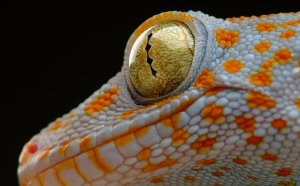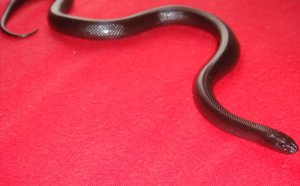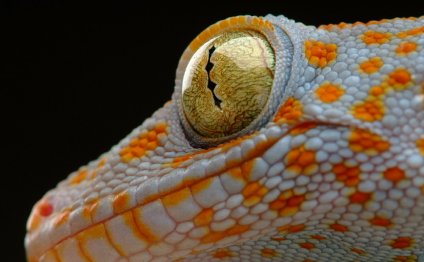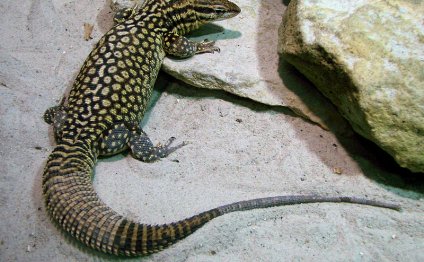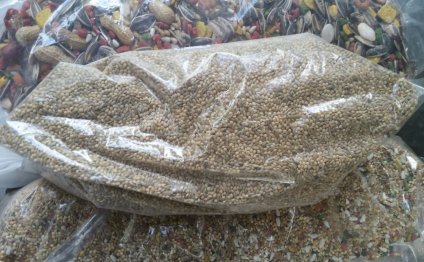
Jackson Chameleon Price
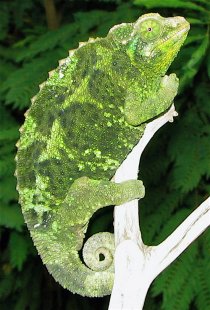 By Linda Davison
By Linda Davison
Male and female Jackson's chameleons.
Linda Davison
Jackson's Chameleon (Chamaeleo jacksonii xantholophus)
The three types of Jackson's chameleons found in areas of the African wild are in the Trioceros subgenera. The seldom-seen Chamaeleo jacksonii jacksonii, measuring snout to vent approximately 4 inches, is from the Nairobi area of Kenya. The C.j. merumonta, measuring snout to vent approximately 3 inches, is only located in the Mount Meru region of Tanzania. The yellow crested Jackson's chameleon (C.j. xantholophus), which measures approximately 5 inches snout to vent, is from the Mount Kenya region of Kenya.
The largest variety of all of the Jackson's chameleons is C.j. xantholophus, and it has been bred in captivity since the early 1980s. Jackson's chameleons are docile species that are great for all levels of chameleonkeepers. They are live-bearing and easy to propagate when healthy. These chameleons are amazing. Who wouldn't want their own baby triceratops around the house?
Jackson's Chameleon Availability
Yellow-crested Jackson's chameleons C.j. xantholophus are the most commonly found of the three types in the United States pet trade today, and the subject of this care sheet. Captive-bred Jackson's chameleons may be purchased from reputable breeders on the Internet, at reptile expos and in pet stores. At the time of this writing, prices for Jackson's chameleons ranged from to 5 depending on the age, sex and lineage (captive bred or wild caught). Most Jackson's chameleons on the market today are captive bred.
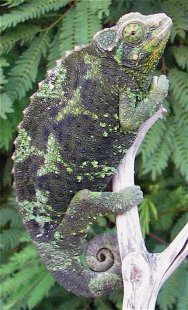
Jackson's Chameleon Size
Yellow-crested Jackson's chameleon hatchlings measure 3 to 4 inches in total length. Adult females are typically 7 to 8 inches in total length, and males are 8 to 10 inches total length. Some males of this variety can reach nearly a foot in total length.
Jackson's Chameleon Life Span
On average, you can expect a healthy male Jackson's chameleon to live eight to 10 years. The females, however, will only live approximately four to five years. Once reproductive, the female's mission is to give birth. This wears them out after three or four broods per year. If you are looking for a single pet, I recommend getting a male because of the longer life span.
Jackson's Chameleon Caging and Substrate
As with all chameleon species, I recommend your Jackson's chameleons be housed separately in screen cages that are a minimum of 3 foot tall by 2 foot square per chameleon. Housing reptiles separately is one way to reduce the stress of captivity.
I recommend using a Ficus benjamina tree or any nontoxic plants that are suitable, along with sticks of various sizes. I prefer paper towels as a ground cover or nothing at all. Remove feces, dead insects or leaves as needed. Once a month, remove the chameleon and plant to give the enclosure a thorough cleaning using a reptile-safe disinfectant.
Jackson's Chameleon Lighting and Temperature
Recommended ambient daytime temperatures of 80 degrees Fahrenheit, with nighttime temperatures of 60 degrees, is an acceptable range for most Jackson's chameleons in captivity. On top of the indoor enclosure I place a UVB full spectrum tube as well as a spot lamp for heat. Place branches for basking 3 to 4 inches away from the screen on the inside, and the light housing 3 to 4 inches from the screen on the outside. Doing this will keep the chameleons from getting too close to any lighting, and prevent a potential burn. Remember, no light bulb will provide the same long-term benefits as the rays of the sun.
RELATED VIDEO



Share this Post
Related posts
Colorful lizard
A very large species of chameleon that is endemic to forests in eastern and northern Madagascar. They reach up to 68 cm (27…
Read MorePetland snakes
Anole Ball Python Bearded Dragon BOA Columbian Leopard Gecko Green Tree Frog Chuckwalla Corn Snake Water Dragon Frog Big…
Read More